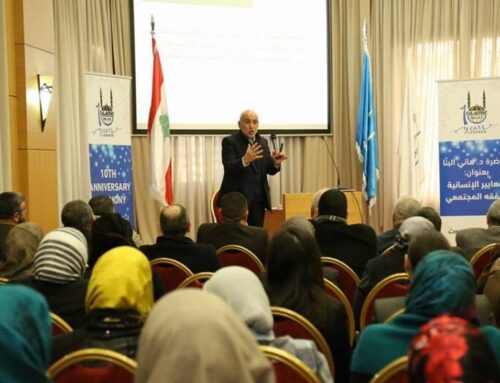Our second side event at the Summit was under the title ‘Co-ordination and Joint Cooperation among Organisation of Islamic Cooperation Civil Society Organisations’. The event was organized jointly with OIC (Organisation of Islamic Cooperation) and was addressing the roles and responsibilities of civil society organization of OIC member states in addressing the findings of the WHS, while promoting dialogue and establish ways to increasing coordination and collective accountability for OIC’s members.

The Panelists were:
Chair: Dr. Hany Elbanna, President, The Humanitarian Forum
– Mrs. Rema JamousImseis, Head of Regional Office for the Middle East and North Africa, UN-OCHA.
– Professor Sultan Barakat, Director of Research, Brookings Doha Centre
– Qazi Isa, CEO, Pakistan Poverty Alleviation Fund
– Ambassador Atta M Bakhit, Deputy Secretary General of Mada
And the main discussion points included:
- Analysis of the strengths and weaknesses of the Civil Society Organisations in the OIC member states.
- Ways in which coordination can be improved through better communication and sense of solidarity between OIC’s CSOs on matters pertaining to a reformed humanitarian system.
- Support available to CSOs after the summit and the role of the UN in providing this support.
- Ways to utilize resources available to work together to build and consolidate the capacity of CSOs.
- The establishment of strategic coordination and synergy between multiple stakeholders.
Main Recommendations:
1) Invest and strengthen capacity at the local level in preparedness and response.
2) To invest more in generating local knowledge and presenting it globally
3) Invest more in cooperation within the region
4) Let us make use of the summit, its recommendations and put them into action
5) Let us build on what has been built and share knowledge and experiences
6) OIC to set up a platform to follow up and monitor the commitments at the summit.
7) Invest more in research, institution-building and civil society
8) Strengthen the cooperation between the OIC and THF
9) Develop a common pool fund; $10m from each OIC country
10) Support national responders in the front line and reinforce rather than replace global actors
11) Strengthen the capacity of local organizations to address governments and civil servants.
12) Strengthen the involvement of the faith-based organization and build their capacity
13) Need to utilize resource available to work together to build and consolidate the capacity of CSOs.
14) Benefit from ICRC in terms of communication and information sharing
15) Improve the relationship between the local actors and the international organization.
16) The role of regional organizations is crucial to engaging youth and women.
17) Use the material of the WHS & THF consultations to inform further research and policy.
Key Quotes
President of The Humanitarian Forum, Dr. Hany El Banna, stressed: “We have spent decades observing weak coordination between civil society organizations in OIC member states as well as their weak engagement with their local government, UN agencies and other regional organizations. Sadly, despite well-intentioned initiatives, not much has changed”.
“This is an exciting time for OIC member states to commit to putting human lives first, utilizing their full potential and holding themselves to account when they fail to meet good standards. I am pleased The Humanitarian Forum has been able to facilitate these talks and grateful to the World Humanitarian Summit secretariat for seeing the need to place this event parallel to the Summit talks.”



